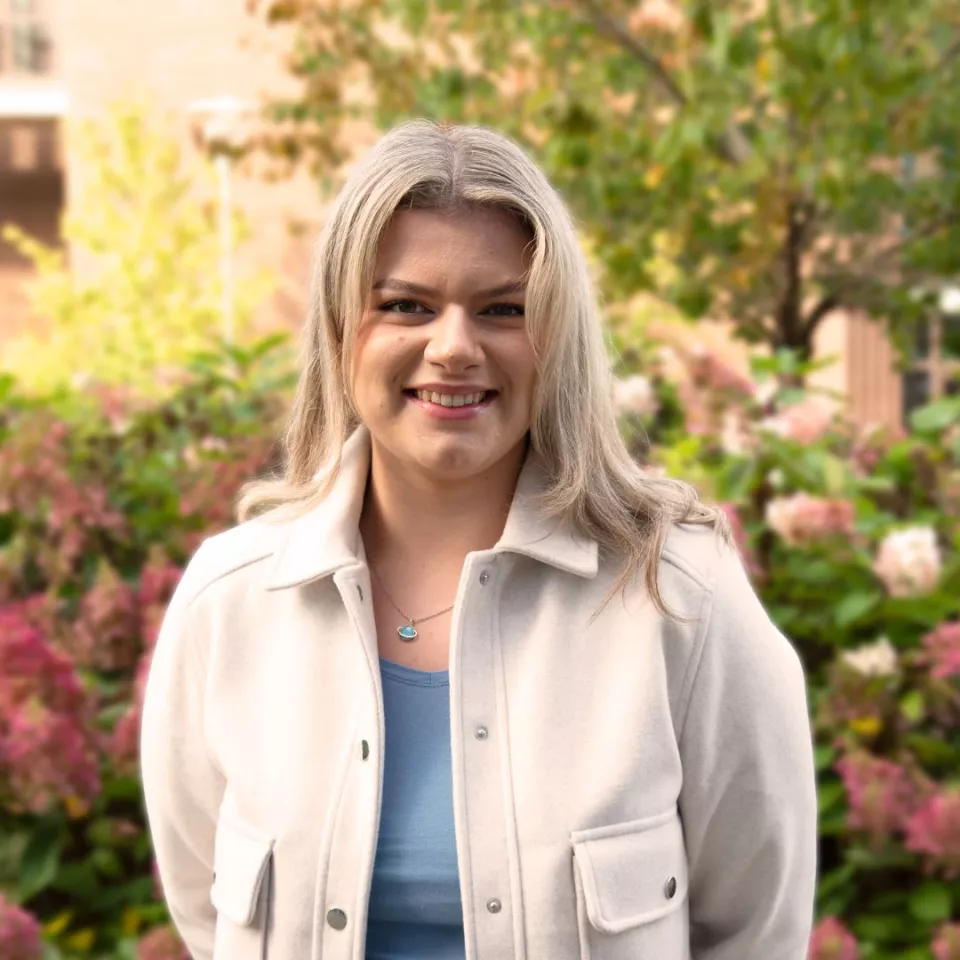
Meet our Bernalite Rebecca Forde, raised in Ireland and part Portuguese with family originating from Madeira. Rebecca is a 4th year PhD researcher working with battery technology.
Her research area is metal sulfur batteries, specifically lithium sulfur. The goal in battery research now is to try and find batteries that are beyond the lithium-ion technology as lithium is a finite resource. There is a need to find other alternatives that will work as good or better and have different materials for batteries that can be applied to the different areas such as portable devices, industrial purposes and grid storage. It's trying to improve one area to have better performance batteries, have lower cost materials, and safer batteries/devices. Her current supervisors who have been pivotal in her research include primary supervisor Prof. Kevin Ryan as well as co-supervisors Dr. Hugh Geaney and Dr. David McNulty.
In her spare time when not working, Rebecca enjoys painting, pilates, tennis and music. She is currently being voice trained with a keen interest in 80’s rock bands. Rebecca is currently finalising a project championing sustainable in waste resources. Collaborating with the University of Porto from Portugal she is using bio-waste to make carbon for batteries. They use samples from Porto University such as fish waste from seafood consumption. Rebecca primarily uses shark and prawn waste, which she carbonises and is making them into cathodes for batteries which is performing extremely well now. Shocked by the capabilities that can be achieved by utilizing disregarded waste, this has been an exciting opportunity and achievement for Rebecca. In 2021, she won image of the year for chemical sciences research day, submitting an image of copper silicide nanowires, that was made in the lab. She was awarded EPE champion by the AMBER Centre for the outreach activities she conducted to promote STEM and women in science along with workshops for transition year students and primary schools. In May of this year, she won 1st place in the Chemical Sciences Research day with her poster detailing work conducted on the study and behaviour of metal-sulfur batteries.
When asked to describe her work to the general public she explains,
“I prepare materials, or I receive materials and prepare them into one component of the battery and then I assemble coin cells and test them via a potentiostat. This is the system that we use to simulate how the battery performs and then I analyse the materials, why they do or don’t work, what's happening inside the system, what is the chemistry taking place that makes it work or not. It entails a lot of problem solving and understanding why batteries work and how they work and how we can use that information to make them better.”
Why is this important?
“It's important to society because we use batteries for everything now. As we are trying to strive for more clean energy usage we need to go deeper into that technology. We can make it cleaner, and we can improve it. We must start getting away from fossil fuels and we have to start looking at using electric vehicles or hybrid vehicles at least. Tt's important in nearly every aspect of society. We use our cars, we have our phones and then all the devices used in industries, companies, institutes so it’s quite literally everywhere, so it's a big area of research that needs a lot of attention.”
If her life could be a theme song Rebecca chose “Let it happen by Tame Impala.” The name itself is reason enough but it’s a good sentiment and helps get hyped for the day.
Best of luck in all your work, we are proud to call you a #Bernalite, from #BernalNeighbourhood.